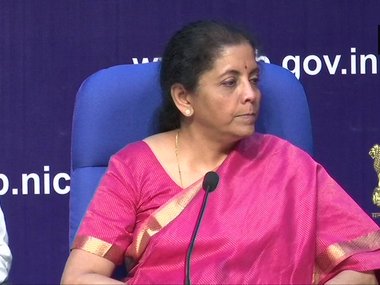In 1991, when then Union finance Minister Manmohan Singh introduced “radical economic reforms” in his Budget speech, he quoted French poet and novelist Victor Hugo to buttress his points. He said “no power on earth can stop an idea whose time has come” and added “I suggest to this august House that the emergence of India as a major economic power in the world happens to be one such idea. Let the whole world hear it loud and clear. India is now wide awake. We shall prevail. We shall overcome.” The ‘annual financial statement’ which is popularly known as ‘Budget’ in common parlance not only lays down an “estimate of income and expenditure for a set period of time”, but also gives a sense of the direction the country is taking in the economic field. While this can give an adrenaline rush to economists, for a layman the part of the budget most anticipated is limited to announcements regarding tax benefits. [caption id=“attachment_6941571” align=“alignleft” width=“380”]  File image of Nirmala Sitharaman. PTI[/caption] And beyond this, if anything succeeds in becoming part of the collective memory of the nation, it is, by all means, the Budget speech often expressed in terms of quotes, couplets and famous lines by famous people. On Friday, when Finance Minister Nirmala Sitharaman presented her maiden Budget in Lok Sabha, she too relied upon the tradition of using couplets and quotes to buttress her point that India is marching towards its goal of becoming a “developed economy’ and to achieve its true place in the comity of nations. Sitharaman, recounting how “mega programmes and services” which we initiated and delivered during Modi’s first term, added that it will “now be further accelerated”. She said, “We shall further simplify procedures, incentivise performance, reduce red tape and make the best use of technology just as we did earlier. I am confident we will achieve our goals.” And to second her confidence she quoted from Chanakya Niti Sutra. She said, “Karya purusha karena lakshyam sampadyate” (with determined human efforts, the task will surely be completed). And in the same breath, Sitharaman also recited an Urdu couplet by Manzoor Hashmi,“Yaqeen ho to koi raasta nikalta hai hawa ki oat bhee le kar chirag jalta hai” (you can find a way if you believe in yourself, just as an earthen lamp can also lighten up despite the air blowing around). At the end of the speech, while thanking “taxpayers who, as responsible citizens, perform their duty by paying their taxes” she said “it is because of their valuable contribution that our government is able to work for our collective dream of inclusive and all-round development of our nation.” And she complimented this with a line from Pura Nanooru, a Tamil Sangam-era work by Pisirandaiyaar. The line means, “A few mounds of rice from paddy that is harvested from a small piece of land would suffice for an elephant. But what if the elephant itself enters the field and starts eating? What it eats would be far lesser than what it would trample over.”
Cutting across language, era and philosophy, she quoted from Swami Vivekananda to Mahatma Gandhi to Lord Basaveshwara.
Sitharaman, quoting from the work of 12th Century Kannada social reformer and philosopher Lord Basaveshwara, said, “This government recognises and follows the teachings of Lord Basaveshwara, in particular, the principles of Kayaka and Dasoha. Implementing ‘Kayakave Kailasa’, the government enables about 10 million youth to take up industry-relevant skill training through the Pradhan Mantri Kaushal Vikas Yojana (PMKVY). This is helping to create a large pool of skilled manpower with speed and high standards. Demographic trends worldwide show that major economies will face severe labour shortages in the future. To prepare our youth to also take up jobs overseas, we will increase focus on skill sets needed abroad including language training. We will also lay focus on new-age skills like Artificial Intelligence (AI), Internet of Things, Big Data, 3D Printing, Virtual Reality and Robotics, which are valued highly both within and outside the country, and offer much higher remuneration.” She added, “Drawing again on Lord Basaveshwara, his principle of Dasoha underlines most things this government does. ‘Give It Up’ for giving up LPG subsidy or the various pension schemes are on the principle of sharing through distribution, for the wellness of the society.” Sitharaman added that in a letter to Swami Ramakrishnanda, Swami Vivekananda said, “‘There is no chance for the welfare of the world unless the condition of women is improved. It is not possible for a bird to fly on one wing’. This government believes that we can make progress with greater women’s participation.” Follow LIVE Updates on Budget 2019 here Union Budget 2019


)

)
)
)
)
)
)
)
)



